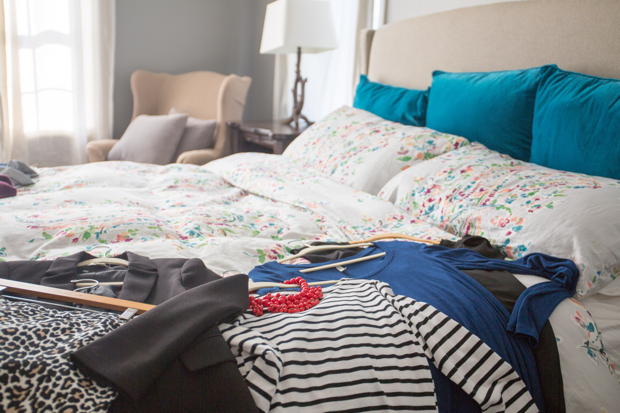
One of the conversations we have with women as they transition to grad school and to various opportunities is: “What am I supposed to wear on my first day of grad school? To a conference? To an interview? To my first day in a faculty job?”
I’ve had people tell me they asked their male advisor for advice, and received word that their advisor has been instructed never to talk to women about how they look, what they wear, or their bodies. And while we affirm this good advice, if your advisor can’t discuss this with you, whom do you ask?
What to wear may sound like a less important topic, but it is an opportunity to affirm our embodied selves going through the world, and an opportunity to look carefully at our institutional norms and decide how to engage them.
So, we asked two trusted friends of The Well this question.
What to wear on the first day of graduate school?
by Anita Patrick
Be encouraged that among the many decisions that have to be made as you start graduate school, figuring out your attire does not have to be stressful. I know contemplating appearances can be overwhelming but a good rule of thumb is not to overthink it.
Your day-to-day life of going to class most likely won’t be that eventful but at times you may be called into "special activities" such as working in a lab, presenting, teaching, or trekking across campus. In which case, I highly encourage you to familiarize yourself with 1) the terrain of your campus, 2) indoor climate of buildings, 3) good walking shoes, and 4) obviously the weather of the day.
This is my most straightforward and practical advice from my time as a grad student. You may notice I didn’t tell you a particular style to adopt. Purposely so. Do you wear business casual? Casual? Do you wear slacks? Pants? Can you wear jeans or your favorite pair of Converse? Not to mention bringing your trusted monkey lunchbox. The answer to all those questions is yes.
You will see all types of attire and accessories among the graduate student population. Thus, my simple and practical advice is to be comfortable and presentable. Be yourself. Don’t let the grandeur of the stage that is graduate school freak you out. Simply consider your task for the day and dress accordingly. Enjoy!
What to wear on the first day of a new faculty job?
by Anne Pharr
Higher education is a particular culture with its own unique set of customs, expectations, and norms. For some, those norms come as no surprise, which makes them easier to navigate. For others, though, the norms may seem hidden and hence, more difficult to anticipate, creating discomfort or anxiety.
One area of uncertainty — perhaps especially for women — may have to do with what to wear on the first day. The “you never get a second chance to make a first impression” adage only adds to the pressure, making the decision feel insurmountably important. So if a soon-to-be-new colleague approached me with this question, I might engage her in a conversation about the following ideas.
First, I would encourage her to name a few women she considers to be professional role models. Whether it is a former professor or someone from a previous or the current institution, thinking about how those individuals dress for the job — and what about their choices is important — can be a good starting point for deciding what she might include in her first-day outfit.
I would also invite my colleague to think about who her students are and how she wants them to perceive her on that first day. While she certainly wants to demonstrate professionalism, she may also want her students to recognize that she is approachable and caring. Such an impression is conveyed through her words and demeanor, but it can also be subtly impacted — or undermined — by clothing choices.
I might also suggest my colleague consider her age in relation to her students. For better or for worse, some students may view and interact with a younger professor in ways that are less professional. Unfortunately for women faculty, this dynamic may not change with years of experience. If that is a concern, my colleague may want to let it inform her clothing choices.
I would encourage my colleague to dress in a way that is not only professional but also congruent with who she is. Wearing clothes that feel more like a costume than an extension of who I am has never worked for me. In fact, it has at times reinforced my own tendency towards imposter syndrome, making me less genuine in my interactions with students and colleagues.
Exploring the cultural norms of higher education isn’t just for the purpose of conforming. Instead, this information provides helpful knowledge — knowledge that lets us determine the degree to which we want to adhere to those norms. This kind of knowledge leads to agency, letting all of us — students and faculty — interact appropriately in a particular context while also remaining true to ourselves.
Photo by Kristin Hardwick on StockSnap